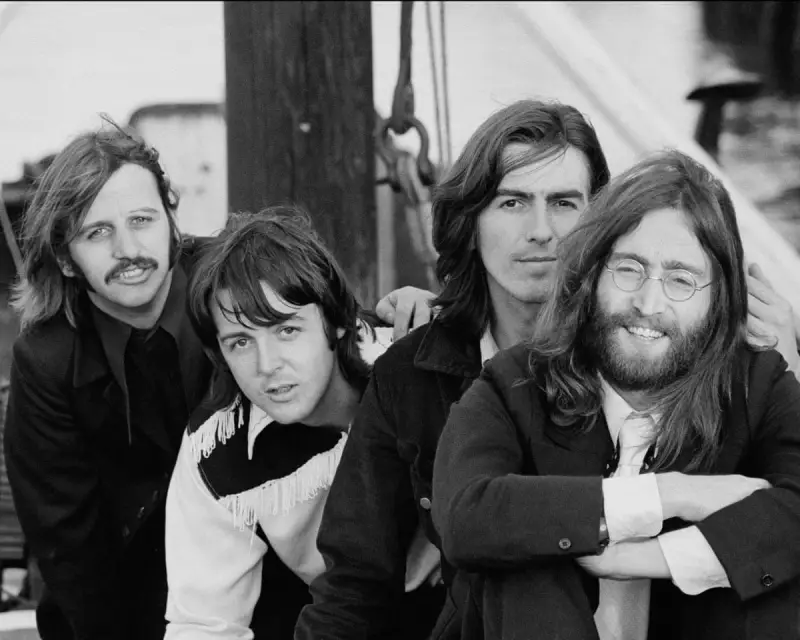
The enduring fascination with the Beatles shows no signs of diminishing as new projects continue to reshape our understanding of the legendary band. This month sees the release of an expanded Beatles Anthology - a substantial reworking of the original mid-1990s compilation featuring CD and vinyl reissues alongside the documentary series streaming on Disney+.
The Evolving Narrative of Beatlemania
Over six decades, perceptions of the Beatles have undergone remarkable transformations. The band has been celebrated, criticised, mythologised and occasionally overlooked. The latest Anthology edition represents more than just another reissue - it demonstrates how the constant reinterpretation of their story reflects our changing cultural tastes.
The most significant addition is a brand-new ninth episode to the original television series, constructed from recently uncovered footage of Paul McCartney, George Harrison and Ringo Starr working together during 1994-95. This intimate material captures the three surviving Beatles in informal moments - rehearsing, reflecting and simply enjoying each other's company as old friends rather than cultural icons.
The footage shows them working on tracks like Free As a Bird and Now and Then, jokingly considering a stadium reunion tour and discussing their shared history, the loss of John Lennon and unfinished musical ideas. It provides a humanising postscript to their well-documented story.
Four Ways of Understanding the Beatles
Academic Erin Torkelson Weber's influential 2016 book The Beatles and the Historians identifies four dominant narratives that have shaped public understanding of the band.
The original "Fab Four" narrative prevailed during their active years, presenting a cheerful, unified image that glossed over drug use, relationship complexities and Brian Epstein's homosexuality. Hunter Davies' authorised 1968 biography epitomises this approach.
The "Lennon Remembers" narrative emerged from John Lennon's raw, bitter 1971 interview with Rolling Stone, where he criticised his former bandmates and associates. Lennon later described this period as being "out of me head".
Philip Norman's 1981 biography Shout! established what Torkelson Weber calls the "Shout! narrative", casting Lennon as the sainted rebel and McCartney as a commercially-minded mediocrity while marginalising Harrison and Starr. McCartney himself dismissed this interpretation as "shite".
Currently, the "Lewisohn narrative" dominates serious Beatles scholarship. Mark Lewisohn, widely regarded as the world's foremost Beatles authority, is engaged in writing his monumental three-volume biography All These Years. His approach is forensic, impartial and driven by musical appreciation rather than personal agenda.
New Perspectives Continue to Emerge
The Beatles' story continues to evolve with fresh interpretations. Recent years have seen more women entering Beatles scholarship, examining gender roles and masculinity in their music. Writers like Questlove and Nelson George have explored the band's relationship with Black artists and Liverpool's colonial history.
Meanwhile, Sam Mendes' ambitious plan for four interconnected biopics, each told from a single Beatle's perspective, promises to further decentralise the traditional "fab four" narrative. Early production details suggest greater emphasis on the band members' partners and family relationships, potentially foregrounding women whose influence has often been marginalised.
Philip Norman's forthcoming biography of Brian Epstein may refocus attention on the band's formative years and the manager's crucial role in shaping their public persona.
As Mark Lewisohn observes, the post-assassination period created a "Lennon world" that unfairly diminished McCartney's contributions. "I think that's been corrected," he notes. "If you stopped eight people in the street now and asked them to name a Beatle, they would say Paul first."
Rather than approaching a definitive understanding, these new projects encourage us to see the Beatles as subjects whose meaning continues to evolve with each retelling. The constant arrival of new material, perspectives and technologies ensures their story remains fundamentally open-ended - a testament to their enduring power to captivate and surprise us six decades after they first shook the world.





